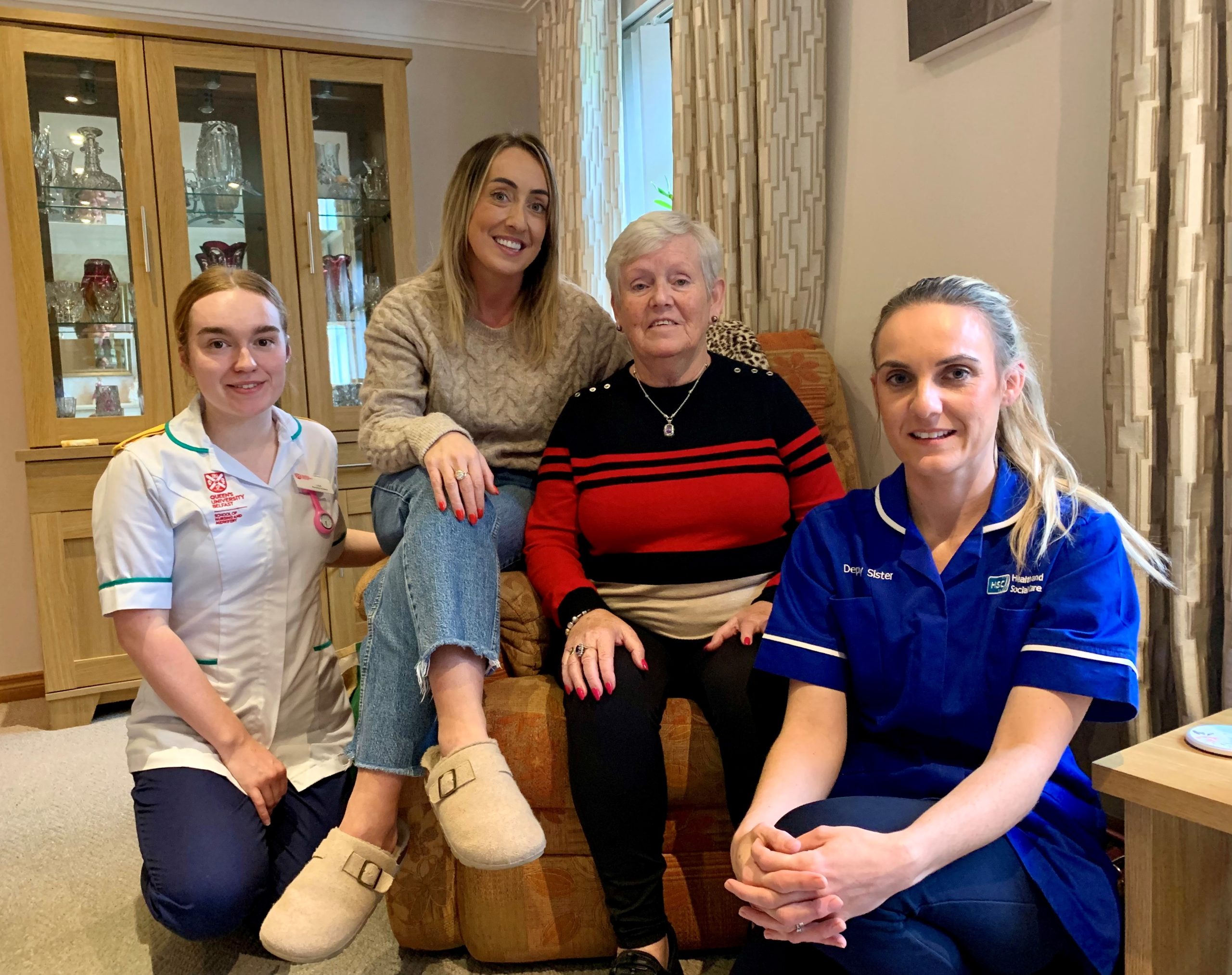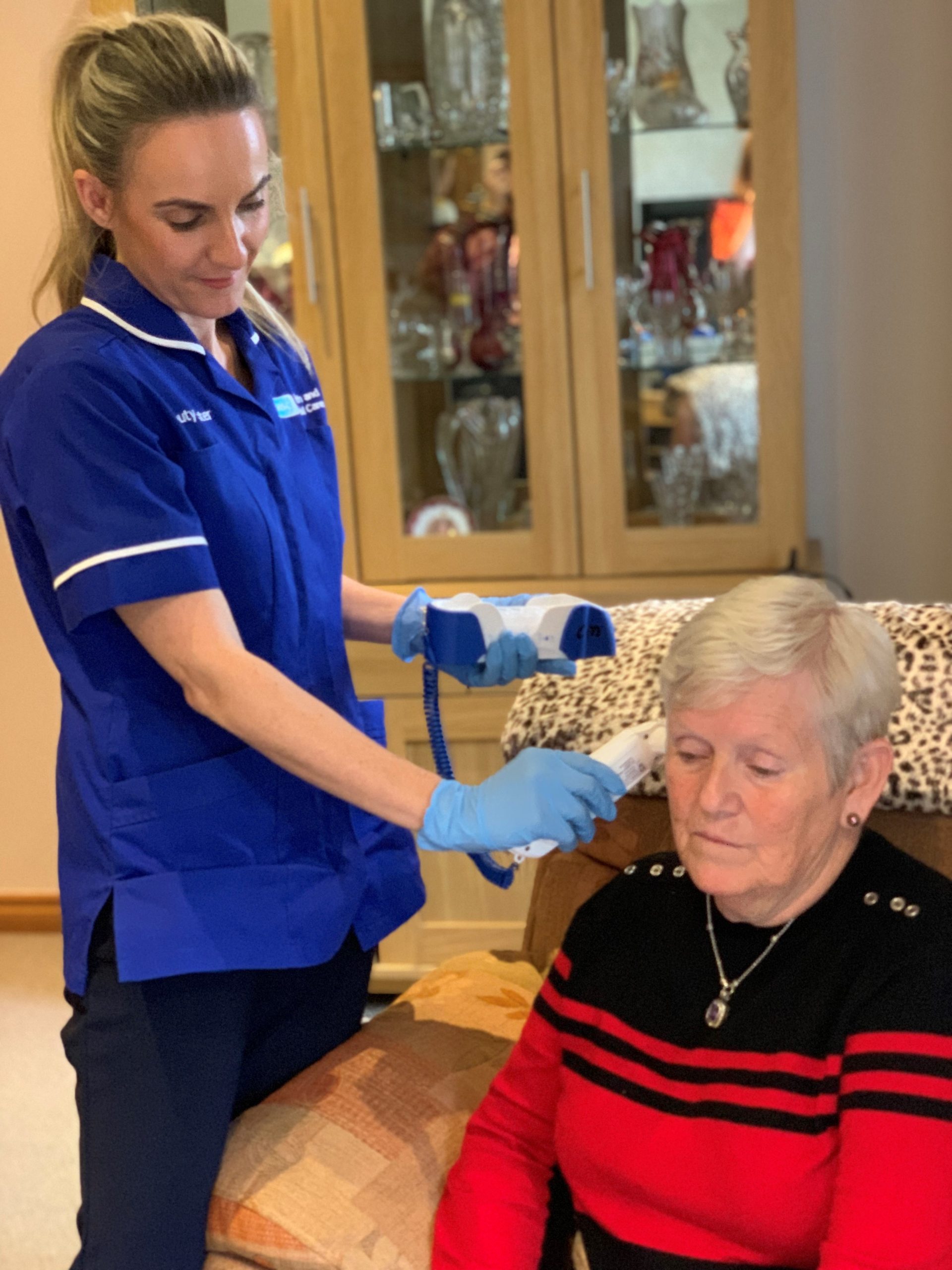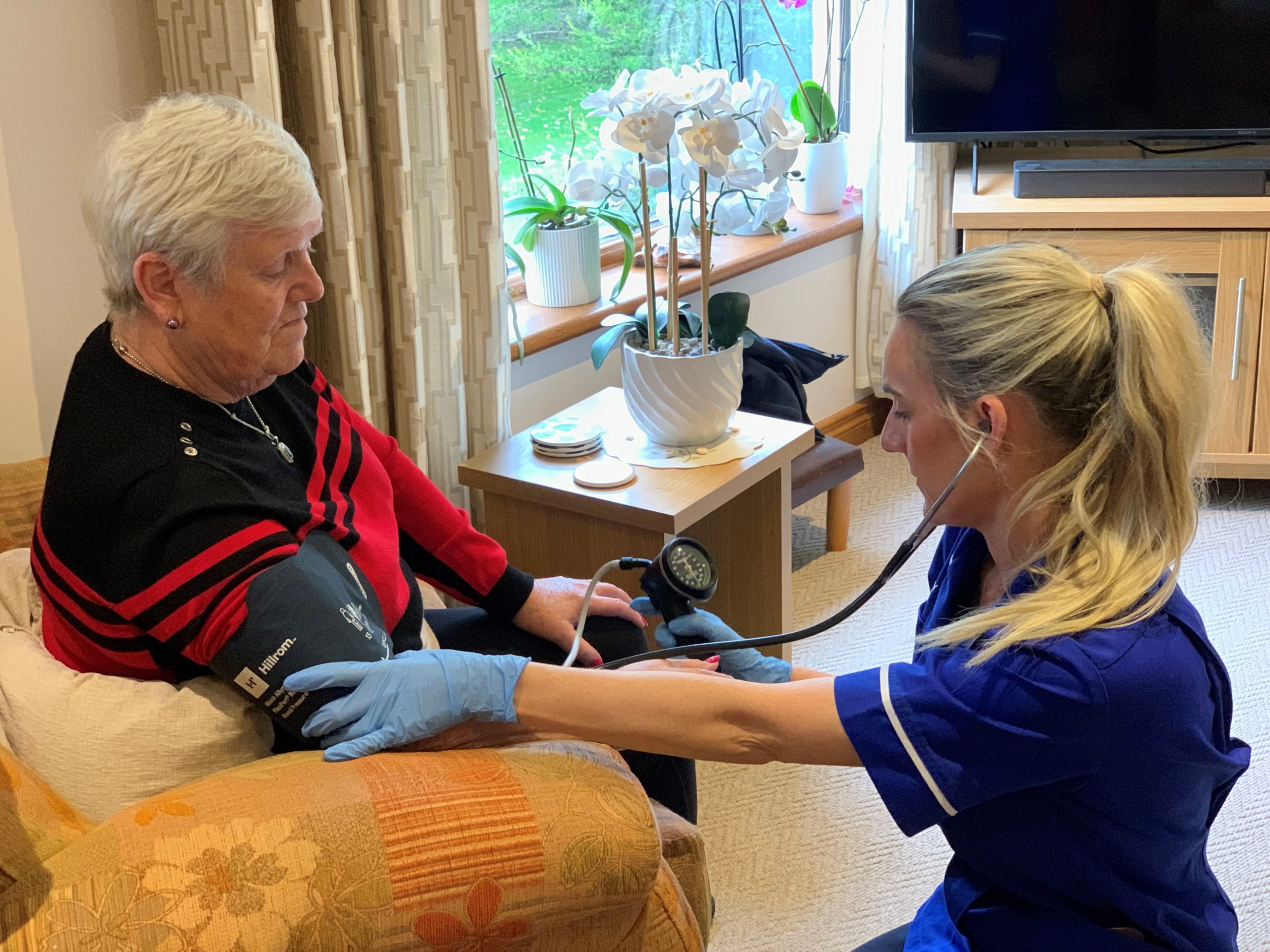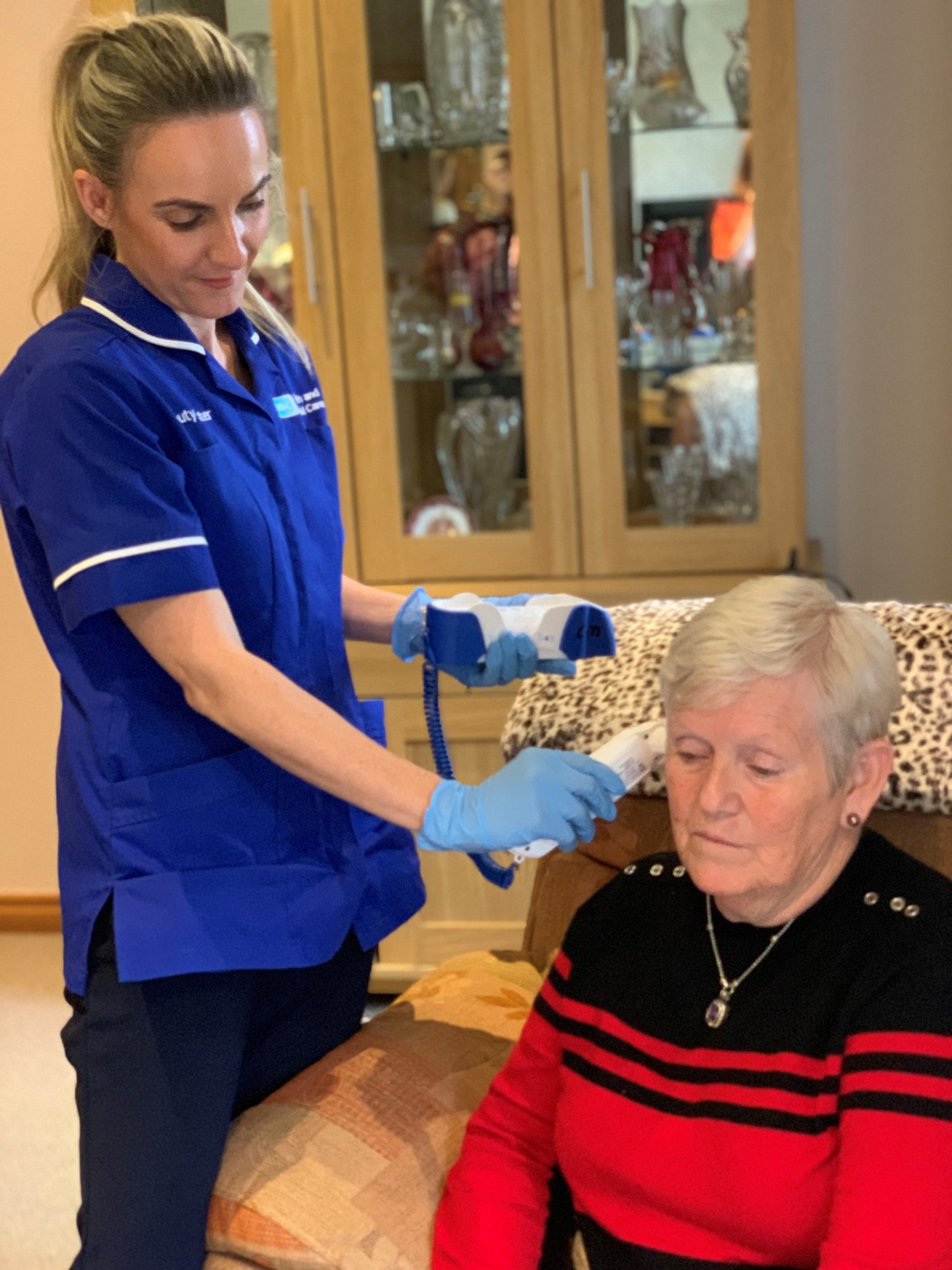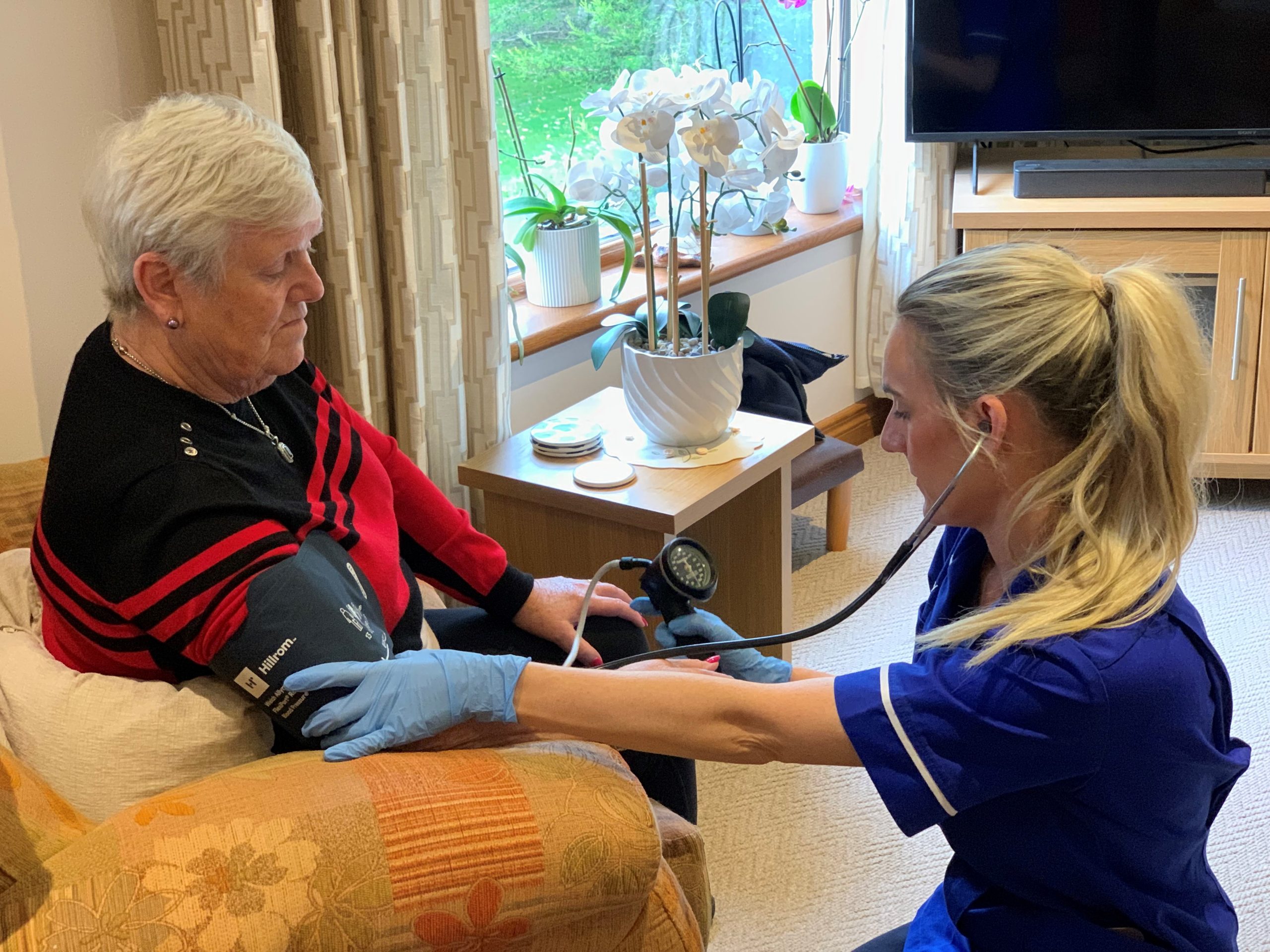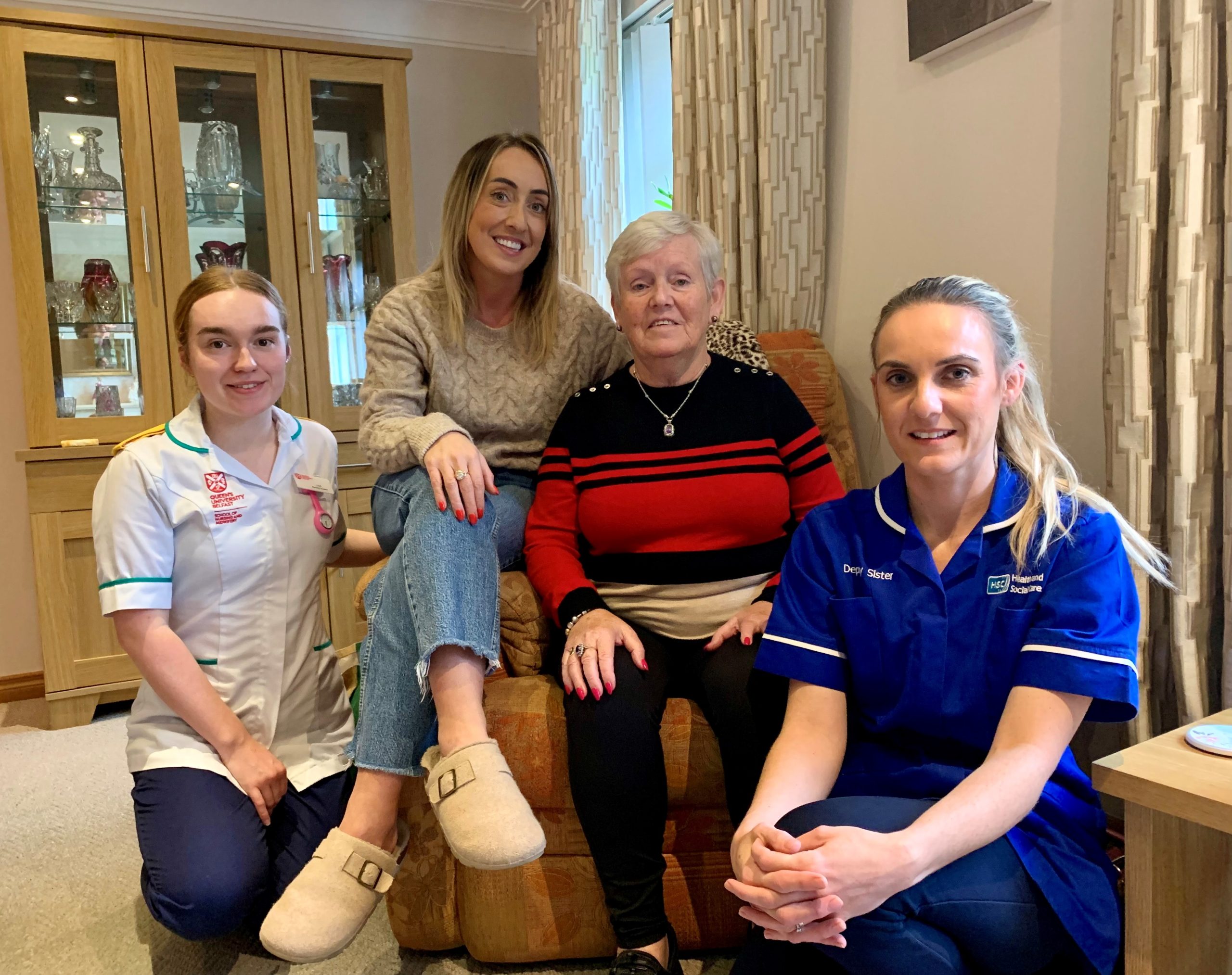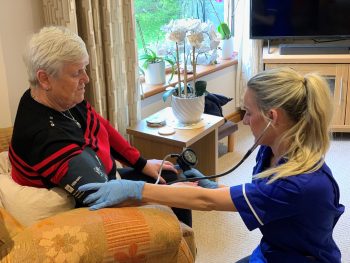
The South Eastern Trust’s innovative ‘Hospital at Home’ service has now rolled out across the Lisburn area. Launched in May 2023 in the North Down and Ards area and earlier this month in the Down area, this ground-breaking service provides Consultant-led hospital-level care to people over 65 and those living with complex health conditions, in the comfort of their own homes or care home setting, helping to prevent unnecessary hospital admissions.
The Hospital at Home Multi-disciplinary Team consists of medical, nursing, pharmacy and allied health professionals, including physiotherapists, all working under the clinical leadership of Consultant Geriatricians.
By working in close partnership with existing community services, Hospital at Home delivers targeted interventions that ensure patients receive the highest standard of care in familiar surroundings. This approach not only enhances patient comfort but also reduces the pressures on hospital resources.
Elizabeth Cork who has Dementia had contracted a Urinary Tract Infection. Her daughter Elizabeth said she could not speak more highly of the service her mum received from the Hospital at Home Team. “The staff were lovely, they looked after her with so much care and compassion. My mum did not want to go into hospital. The Nurses were coming out to see her, two to three times a day. They were so good.
“With Mum having Dementia and a UTI, which resulted in Delirium, she was more confused. Mum was more agitated and to have her treated at home was unbelievable. For Mum to feel secure and safe in her home and for me to be part of her care was really important as well.”
Toni continued, “It was Mum’s GP who told me about the Hospital at Home Service and the team were straight out within half an hour of the phone call having been made to treat Mum. They have been fantastic. Being treated at home has meant everything to Mum,”
Lagan Valley Hospital Deputy Sister, Christina Milligan, added, “Elizabeth had become unwell and had not been herself. The Hospital at Home Service came out and treated her in the comfort of her own home. Within the service we have Advanced Nurse Practitioners, Consultants and Registered Nurses. We are able to bring everything you can get in the hospital setting to the home and we were able to provide that for Elizabeth.
“Having patients nursed in their own home really does reduce the risk of infection which is going to lengthen their stay in hospital. With a patient being treated at home, it is much more beneficial for them. They have their family and there is no restriction on visiting.”
The South Eastern Trust’s Director of Older People and Primary Care, Veronica Cleland, is delighted to see the expansion of the Hospital at Home Service into the Lisburn area. Veronica added, “We have been operating the Hospital at Home service in the North Down and Ards area for a number of years and more recently in the Down area with such positive feedback from people who have used the service. Hospital at Home will compliment and work seamlessly with existing community and acute services, including the Lagan Valley Hospital Acute Frailty Unit.
“The Trust has prioritised investment to develop this service to support people to receive acute care at home. The service will support the Trust in delivering the Health Minister’s strategic vision of providing care closer to home, as outlined in the recently published Reset Plan.”
South Eastern Trust, Consultant Geriatrician, Dr Amanda Crawford highlighted the benefits of the service. “We are delighted to now be able to expand the service across the Trust and this provides equitable care across all localities, for all patients. It is a very important pathway for hospital avoidance which provides an alternative to ED and admission. It provides hospital level care for those who are suitable for it.
“This model of care allows us to bring the hospital to the patient, it is less stressful for the patient ensuring they receive specialist treatment while remaining in their own environment, particularly those who are living with frailty. Avoiding hospital admission where possible can significantly improve patient outcomes, reducing the risk of hospital-associated complications such as infections and deconditioning.”
Dr Crawford added, “We find that by providing the Multi-disciplinary Team to patients and with rapid access to rehabilitation, we are mitigating the need for increasing packages of care. From the evidence, we know that fewer patients are needing long term care.
“We undertake a whole list of multi-disciplinary assessments. We do not just work out what the patient’s acute medical needs are, we work out all their other needs and develop an individualised care plan with the patients, their families and carers, so it is a patient-centred and holistic assessment of care.
“The feedback that we have received has been so positive. It is so rewarding to be able to provide hospital level treatments in the patient’s own home, it is such a privilege.”
Explaining the vital role that the Northern Ireland Ambulance Service (NIAS) plays in the service, Clinical Pathway Lead Gary Meehan commented, “The expansion of the Hospital at Home Service will be beneficial for the Ambulance Service, this is the way forward for care in the community.
“NIAS’s role in all of this is very important because we would be the first people to see the patient and make the decision if they are suitable to be referred to the Hospital at Home Team. It reduces the demand for our resources and reduces the need to be transported to the hospital. It also reduces the amount of time that patients have to wait to get into the ED and the treatment that they require there.”
Occupational Therapist, Barry Smyth described how his role makes a difference within the service and said, “When patients are in their own home, you get a much more realistic view of how they manage tasks such as climbing the stairs or in the kitchen. When a patient is in hospital, it is not as easy to determine how well a person is going to manage in their home environment. It can be a lot different between hospital and home, so assessing them in their own environment is so much better.”
“It is the way of the future. I think if we can keep patients at home, it is much better than them being in hospital. It reduces the risk of infection in hospital and it benefits them and their mental wellbeing by being able to stay in their own environment.
“You get a lot of job satisfaction from it, especially with the feedback that we are getting from patients and how well the service and Occupational Therapy is working for them.”




